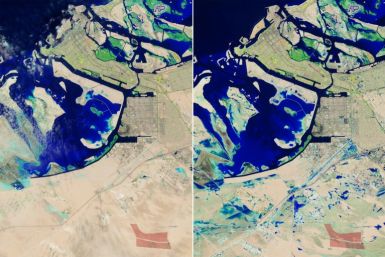Major Australian Universities Offer World Online Courses
The University of New South Wales (UNSW) and University of Western Australia announced Wednesday, July 31, 2013, that they will be offering free online courses to interested students all over the world come 2014.
The program will be called Massive Open Online Courses (MOOCs). MOOCs was comprised of different online courses which students can choose from. Finishing any of these online courses will not merit students a diploma, degree or any credit BUT will surely enhance and add to skills and learning already taken from a degree in the different universities.
According to the United States Studies Centre at the University of Sydney, MOOCs posed no threat to formal studies taken from universities, but, in fact, universities can also learn from MOOCs through adapting effective technological skills in order to conduct lessons online.
UNSW's Acting Vice-Chancellor Professor Iain Martin said that partnership with Coursera had become instrumental in promoting the university's digital education profile.
"Importantly, it is also an excellent opportunity to incorporate some of the best online teaching practices and technological advancements into degree programs taught at UNSW," said Mr Martin.
Proponents of MOOCs explained that the internet poses a challenge to education just like how it challenged the music industry. They said that instead of being threatened by the challenge, the education industry should adapt to the challenge to make it work to its advantage.
Simply put, MOOCs can be the "iTunes of higher education," as it provided more accessible and affordable education.
"It's not as if iTunes killed the Rolling Stones or going to a Rolling Stones concert, in fact maybe those are even more attractive now because you can buy a playlist on iTunes," explained by Professor Geoffrey Garrett of UNSW.
"Yes it's true people can access your material now more conveniently than they ever could before, but some people still want to experience the real concert, or the real education," Mr Garrett said.
Mr Garrett also said that the MOOCs were solely focused on the experience of learning and not getting an accreditation.
"Instead of getting it from the local TAFE, you get it from a Harvard philosopher," said Mr Garrett.
Online courses in science and engineering will be the very first offerings from the UNSW come 2014.
"Today, no college can tailor a student's curriculum to her learning style. Perhaps one student learns math well in the digital environment but needs small, in-person interaction for copyright law; another can learn to build data visualizations through an online course but needs an intimate space for discussions of novels tackling difficult questions of psychology and identity. With MOOCs, a student could mix and match on-campus and online courses to best support her learning style, and schools could focus on what they do best without students needing to forfeit other kinds of learning," Danielle Allen explained. Ms. Allen is a professor of Social Science at the Institute for Advanced Study in Princeton, N.J. and author of the book Education, Justice and Democracy.






